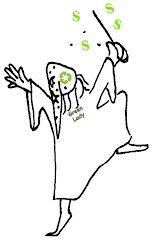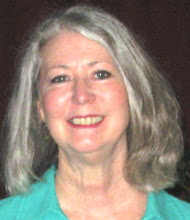
I believe our neighborhoods are the answer to all our environmental problems. We know our neighborhoods, even if we don’t know the individuals. We know where the litter collects; we even know who’s recycling; and we know which neighbors need help with their property. Our neighborhoods are a great place to start practicing sustainability.
Neighborhoods are also perfect opportunities to share information. We can share resources about energy audits; share solutions to “greening” our homes; and share how we stopped loosing money by changing to compact fluorescents lightbulbs. For hundreds of years – right where you are – neighbors have been sharing composting materials, plants, and ways to control weeds without pesticides.
Our neighbors are a great opportunity to teach others what we know. There is a synergistic effect that occurs when even one of us moves toward sustainable ways of being. Quoting from www.centerforsustainablecommunity.org/, “As we become stable within ourselves, we become a stabilizing source for others, thus bringing peace to the often-chaotic forms of change”.
Like Margaret Mead said “Never underestimate the power of a small group of committed people to change the world. In fact, it is the only thing that ever has." Just three women - Susan Campbell, Cindy Baxley and Martha Grizzel - coming together to say “Enough!” The Whitlock Warriors, begun during the Great American Cleanup this year, have turned their neighborhood around. In only 5 months they have coordinated two cleanups, a garage sale, and a crime watch meeting attended by 85 of their residents. They’re planning a community garden where all ethnicities will come together bettering their neighborhood and in doing so, becoming friends.
To solve problems like the environmental issues plaguing us all takes more than individual action - it takes community action. Many communities these days find themselves under extraordinary stress. Even for affluent communities - taking care of one another, educating our kids, caring for the ill, helping people who need a hand - is proving difficult. As www.worldchanging.com/community/ puts it “Communities of all kinds need to work together, thinking about the problems they face in a holistic way and working to strengthen the fabric that binds us together.”
“Communities have to demonstrate their ability to address serious challenges with innovative, grassroots strategies that promote civic engagement and cooperation between the public, private and nonprofit sectors. In cases where residents provide hands-on care, they help create a sense of community pride” author Shirley Sagawa in her book Common Interest Common Good.
Constructive and innovative partnerships between different interests often provide significant progress toward creating sustainability. Partnerships may form around specific issues or areas of concern. "These communities really give us hope," said National Civic League President Gloria Rubio-Cortés, "because they show others what can happen when people roll up their sleeves and work together."
There are hundreds of websites about sustainable communities that give you a good place to begin: Co-op America Quarterly www.coopamerica.org/; Communities Magazine www.communities.ic.org/; Bountiful Gardens www.bountifulgardens.org/; Organic Gardening www.organicgardening.com/; Permaculture Activist www.permacultureactivist.net/; Mother Earth News www.motherearthnews.com/; Small Farm Today www.smallfarmtoday.com/; World Watch www.worldwatch.org/pubs/; and Solar Today www.solartoday.org/links.htm. Go choose an idea that fits into your life.
The birds and animals are also our neighbors.
I have chosen to create a Backyard Wildlife Habitat where many birds of all kinds come for shelter. If we all made a small space for them in our yards – providing shelter for nests, food and water – they would have migration corridors and not be pushed out. Recently a large hawk, maybe 18 inches tall, brought it’s prey to comfortably have dinner in my yard – feeling right at home. These “saved” green spaces marry with our parks to create vibrant corridors and gardens throughout our community, bringing urban neighbors together and creating a higher quality of life throughout the city.
According to the Northwest Earth Institute discussion group I’m attending, we can start forging friendlier neighborhoods by making simple contacts, making ourselves accessible out working in our garden; by using our neighbors as a resource for expertise, baby-sitting or buying in bulk; and by helping those we know need a hand or a casserole. We can all be part of putting-back-the-juice into our communities.




No comments:
Post a Comment
Would love for you to help me empower everyone to do what they can to conserve our beautiful planet for our children's children.